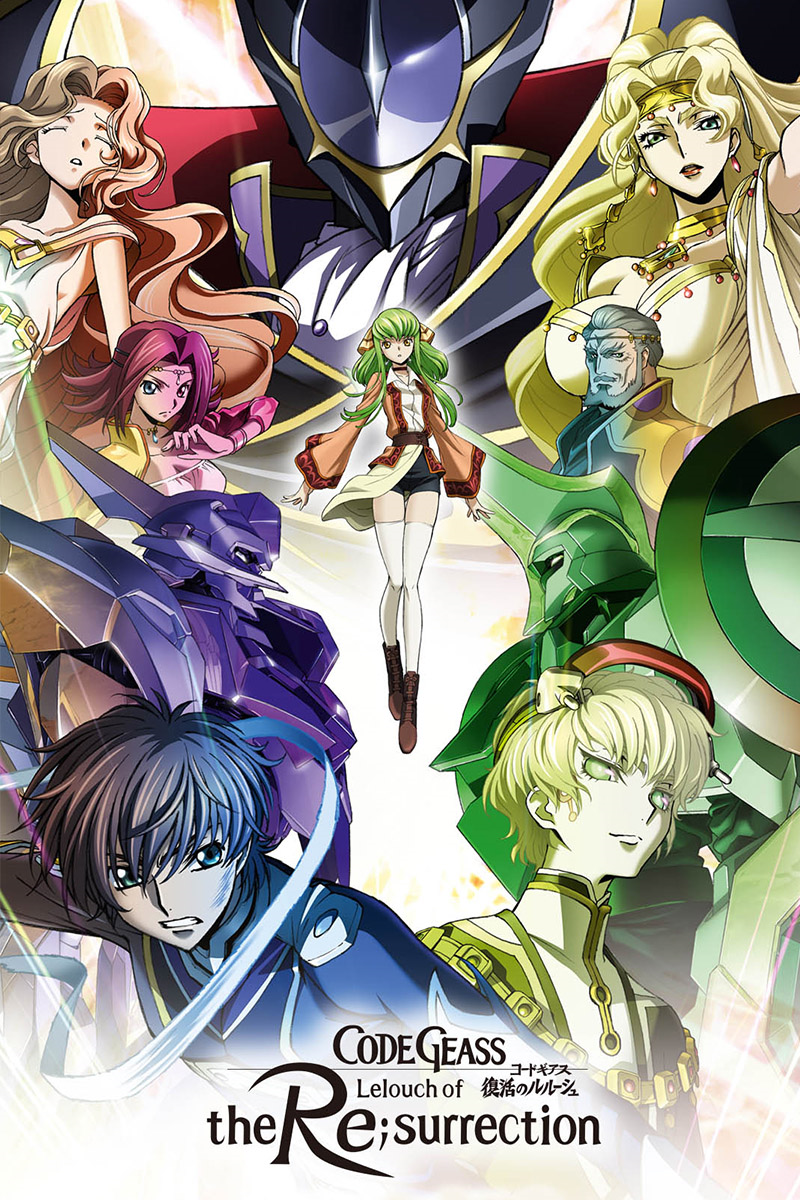
I finally have the chance to watch the entirety of Code Geass, including the Lelouch of the Re;surrection movie, within the last week (I have to thank Netflix and Anione on that one). With the movie in particular, I worried that the whole thing is going to be a lazy fanservice, where the strength of the narrative only comes in allowing fans to see their favorite characters once again. To my surprise, Lelouch of the Re;surrection is probably the best kind of fanservice. Not only did it captures the key strength of the original series (coherent action set pieces, strong ensemble), it also actually has a theme that felt mostly cohesive with a complete arc.
That theme is moving on from the past.
Kingdom of Soldiers

Moving on from the past is a understandable moral to preach. It advocates not to lament what has come to past (which is impossible to change), but to walk forward for self-improvement. But what makes this difficult to achieve is when the past is so tied into your sense of self that it becomes impossible to untangle. Lelouch of the Re;surrection portray this dilemma in the kingdom that the movie’s antagonist resides in, Zilkhstan. It’s a country of soldiers, a land where warriors are trained and then shipped of to another country as a mercenary to fight in a war. It’s basically the main commodity of the whole kingdom. As you may have guess, in a post-Zero Requiem world where peace has been achieved through Lelouch’s self-sacrificing scheme, soldiers are pretty much the one commodity that the rest of the world doesn’t need. This transition toward warrior-less world, which will pretty much bankrupt the kingdom’s economy, is not something that Zilkhstan either don’t want to embrace and/or ill-equipped to prepare for.
The way war is tied to the foundation of kingdom’s being parallel’s the characterization of Shalio, Zilkhstan’s king. He is a boy who not only obsess to become the ultimate soldier, his entire body is basically reduced to what he is because of his constant fighting, even lamenting “How many people have suffered to allow me to maintain my body?”. War and battle not only made up Shalio’s sense of self, it also made up the rest of the kingdom. This problem makes moving on from the past and embracing changes especially difficult.
Turning Back Time

Facing this impending obsoletion and unable to move on from its mercenary-based economy, the only thing the kingdom could do is to the go back to the past. If personal changes can’t be made, the only thing that could be done is to change the world itself. This is reflected in Shamna’s, the kingdom’s queen, geass capability which is to rewind time every time she dies. Using this power, she plotted a scheme in order to use the C’s World to turn back time, undoing Zero Requiem in the process. When this offer to go back to the past is offered to Lelouch, tempting him with the promise of eliminating all the wounds and trauma he endured, he refused. Wounds of the past, after all, is what makes him the man he is now. It also reflects the entire ethos of the Zero Requiem in the first place; burying the past, all the while embracing all the struggle that humanity has faced before, in order to walk forward into the future. There’s no use to concoct fate denying scheme such as turning back time, all that can be done is to accept the progress of history.
Granted, all this thematic elaboration of moving on from the past is somewhat undermined by Lelouch of the Re;surrection‘s major plot point which is, as it can be seen from the title, Lelouch’s resurrection. The movie can’t really talk about embracing the future when it also wants to bring it’s franchise’s main protagonist back from literal death. But outside of this very glaring issue, the way the movie explores the necessity of change remains solid. This can be seen in the way it portrayed the economy of Zilkhstan, how the post-war world affects it, and how the queen schemed to turn back time in order to fight it.
Side Note
- Overall, I’d say Code Geass as a whole is a messy franchise. What it has to say about war and morality is… a bit murky at the end. But during its best moment, it’s basically a blueprint on how to construct drama and action set pieces. It also helps that the franchise as a whole has a very strong ensemble focus, where it juggles multiple cast of characters each with own motivations and goals, which is basically my jam.
- There’s a scene at the end where Tamaki and Ohgi commented the fleet of refuge who was forced to leave the dying country. While it’s not exactly explored in-depth, I like that the movie acknowledges the real consequences of Lelouch’s action to shut down the entire nation.
- Lol, Lelouch (or should I say L.L.) and C.C. basically became vampire goth couple.
- I really question the need to have an alternate timeline within movie’s universe. The detail of how C.C. procured Lelouch’s body so that he can be revived is basically something that the creative team can make up however they want; the movie don’t really need Shirley still alive for this to happen. Oh well, not that Shirley’s death in the original TV series is all that impactful or even well-executed anyway.
- It’s weird that everybody is just chill and even happy with Lelouch’s return. I get that he brought world peace, but considering all the things that he had done, I feel like people should be more on edge with him.